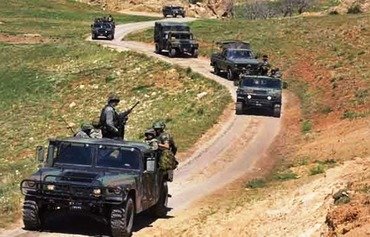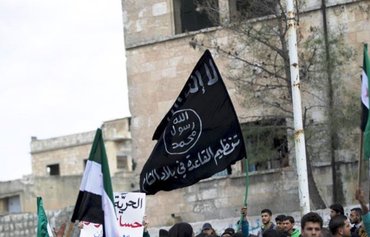As al-Qaeda and the "Islamic State of Iraq and the Levant" (ISIL) struggle to establish dominance in Syria, the conflict between the two rival groups is coming to a head, experts tell Al-Shorfa.
An increase in direct confrontation would considerably weaken both groups and could eliminate many of the satellite groups that have pledged allegiance to ISIL or al-Qaeda's Syrian affiliate, al-Nusra Front (ANF), they said.
Conflict has existed between the two groups since ISIL’s inception and subsequent expansion from Iraq into Syria, said former jihadist Sheikh Nabil Naim, who was a founding member of the Islamic Jihad in Egypt.
"The recently forged alliance between al-Qaeda and the Taliban, after al-Qaeda’s top leader Ayman al-Zawahiri swore allegiance to the Afghan Taliban’s new leader Haibatullah Akhundzada, pits ISIL against the hardline takfiri current in more than one region of the world," he told Al-Shorfa.
This include Syria, Afghanistan and Pakistan in particular, he said, where it is in the best interest of the Taliban-al-Qaeda alliance to eliminate ISIL.
Haibatullah assumed the leadership of the Afghan Taliban in May, and al-Zawahiri pledged allegiance to him in an audio recording posted online on May 27th.
Meanwhile, the course of events in Syria indicates that ISIL and ANF "are on a collision course", Naim said.
"This conflict actually began in 2015 after direct confrontation on the ground between the two groups," he said, adding that they have been engaged in a vicious media war for close to two years.
Mounting losses
"The conflict between ISIL and ANF in Syria would considerably weaken the military strength of both," said retired Egyptian military officer Maj. Gen. Wael Abdul Muttalib, a Regional Centre for Strategic Studies researcher who specialises in extremist groups.
The fighting is likely to take the form of street warfare in urban areas and battles in the mountains where both groups hold fortified positions, he told Al-Shorfa.
Regardless of the outcome, these battles will "weaken their military strength, deplete their numbers, exhaust their fighters and [deplete] their tactical capabilities", he added.
Tension between the two groups is mounting as the international military campaign reaches its peak, particularly in northern Syria, he said, where developments on the ground put ISIL and ANF in a difficult position.
The two groups are fighting on many fronts, he said, and are in dire financial straits as their sources of revenue are being severed by liberating forces.
This will drive them to try to occupy new areas in order to secure new streams of revenue by imposing fees, collecting zakat and taking control of resources such as agricultural crops and oil wells, he said.
"The tension between the two sides had previously peaked when they both pronounced takfir on each other and accused each other of not seeking to establish a true 'Islamic state'," he said.
Syrian civilians 'pay the price'
Political and military indicators in Syria clearly point to an escalation between ISIL and ANF, said Syrian journalist Mohammad al-Abdullah, who resides in Cairo.
This is because "ISIL militants describe ANF elements as apostates because they do not support [ISIL] in its battles in northern Syria", he told Al-Shorfa.
ANF is trying to tighten its grip on the areas under its control by excluding armed factions that do not approve of its actions, he said.
"This year, 2016, the war on the ground has begun," he said.
The two groups are experiencing major setbacks in Syria after losing control of key routes that they had used to smuggle in fighters and weapons and conduct illegal trade in commodities such as oil, he said.
The price of this conflict "is being paid by Syrian citizens", he said, both those who remain in the country, where poverty and the lack of education and medical care prevail, and those forced to migrate because of the war.
"The control of an area by either of those two groups leads to its certain impoverishment due to the theft of all its resources," al-Abdullah noted.

![Fighting between the 'Islamic State of Iraq and the Levant' and al-Nusra Front in Yarmouk camp in Damascus triggered a massive wave of displacement. [Photo courtesy of al-Yarmouk Media Network Facebook page]](/cnmi_am/images/2016/07/14/5751-Syria-yarmouk-camp-600_384.jpg)






